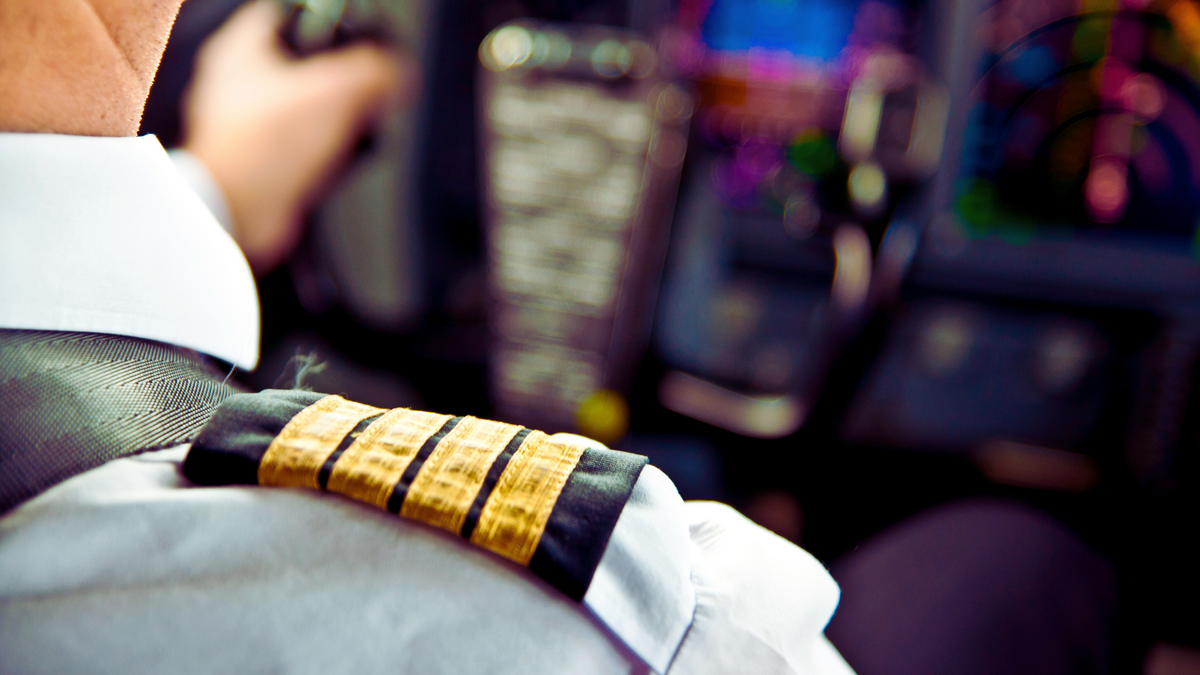Essential Qualities of a Commercial Airline Pilot: Skills That Soar Above the Clouds

Commercial airline pilots are the skilled professionals responsible for the safe and efficient transportation of millions of passengers around the world each day. They command immense responsibilities, requiring a unique combination of technical expertise, decision-making abilities, and personal qualities. In this blog, we will explore the essential qualities that make a commercial airline pilot successful and how they contribute to the smooth functioning of the aviation industry.
Technical Competence:
One of the primary qualities of a commercial airline pilot is technical competence. They must possess a deep understanding of aircraft systems, avionics, and flight operations. This knowledge includes expertise in navigation, meteorology, aerodynamics, and the ability to interpret complex flight manuals and instruments. A pilot's technical competence is honed through extensive training, practical experience, and ongoing professional development.
Excellent Situational Awareness:
Situational awareness is the ability to perceive and comprehend the current circumstances of the flight environment. A skilled pilot must possess exceptional situational awareness to anticipate and respond effectively to any potential threats or challenges. This quality ensures the safety of passengers and crew, enabling pilots to make quick and informed decisions even in high-pressure situations.
Case Study: On a long-haul international flight, a commercial airline pilot noticed an unusual vibration in the aircraft's engine shortly after takeoff. Recognizing the potential danger, the pilot immediately declared an emergency and coordinated with air traffic control for an expedited return to the departure airport. The pilot's situational awareness, combined with strong leadership skills, ensured a swift and safe return, prioritizing the safety of the passengers and crew.
Strong Communication Skills:
Effective communication is vital for a commercial airline pilot. Pilots need to convey important information clearly and concisely to air traffic controllers, crew members, and passengers. They must also possess active listening skills to understand instructions and adapt to changing circumstances. Clear and precise communication fosters efficient collaboration and contributes to a safe and smooth flight experience.
Leadership and Teamwork:
Commercial airline pilots often work as part of a team, including first officers, flight attendants, ground crew, and air traffic controllers. Pilots must possess strong leadership skills to coordinate and direct the team effectively. They should inspire confidence and build trust among their colleagues, fostering a positive work environment and ensuring effective collaboration to meet operational goals.
Case Study: In challenging weather conditions with low visibility, a commercial airline pilot experienced a failure of essential navigation equipment. The pilot promptly notified the first officer and worked collaboratively to navigate using alternate instruments and communication with air traffic control. The pilot's strong teamwork and communication skills allowed them to effectively manage the situation, ensuring the safe continuation of the flight and avoiding delays for the passengers.
Decision-making Abilities:
The ability to make sound decisions quickly and effectively is crucial for a commercial airline pilot. Pilots face numerous situations that require swift judgment, ranging from weather-related diversions to equipment malfunctions. They must evaluate the available information, consider potential consequences, and choose the best course of action while prioritizing passenger safety and minimizing disruptions to the flight schedule.
Case Study: During a routine flight, a commercial airline pilot encountered severe turbulence unexpectedly. The pilot swiftly assessed the situation, decided to deviate from the planned route to avoid the turbulence, and communicated the decision to the air traffic controller. The pilot's quick decision-making and effective communication ensured the safety and comfort of the passengers and crew, minimizing the impact of the turbulence.
Emotional Intelligence:
Emotional intelligence refers to the ability to recognize, understand, and manage one's emotions and those of others. A commercial airline pilot must possess emotional intelligence to manage stress, remain calm under pressure, and exhibit professionalism in all situations. This quality allows pilots to build rapport with passengers and crew, handle emergencies with composure, and maintain a positive and secure environment on board.
Case Study: During a transatlantic flight, an elderly passenger experienced a medical emergency, exhibiting signs of a heart attack. The commercial airline pilot, with the support of the cabin crew, assessed the situation and provided timely first aid while coordinating with medical professionals on the ground via radio. The pilot's emotional intelligence and problem-solving skills were instrumental in managing the situation, reassuring the passenger, and facilitating a smooth emergency landing at the nearest suitable airport for urgent medical assistance.
Critical Thinking and Problem-solving Skills:
In the aviation industry, unexpected situations and technical issues can arise at any moment. Commercial airline pilots must be adept at critical thinking and problem-solving. They need to analyze complex situations, identify potential risks, and find innovative solutions to ensure the safe continuation of the flight. These skills are essential in assessing emergency situations and implementing appropriate procedures.
These case studies demonstrate how the essential qualities of commercial airline pilots, including quick decision-making, situational awareness, communication skills, leadership abilities, emotional intelligence, and problem-solving, play a vital role in ensuring the safety, efficiency, and comfort of air travel.
The role of a commercial airline pilot demands a unique blend of technical competence, situational awareness, leadership abilities, and emotional intelligence. The qualities discussed in this blog form the foundation of a successful pilot's skill set.
These individuals not only possess the technical knowledge and expertise required to operate an aircraft but also demonstrate the personal qualities necessary for effective communication, decision-making, and teamwork. By embodying these essential qualities, commercial airline pilots ensure the safety and comfort of passengers, making air travel one of the safest modes of transportation available.